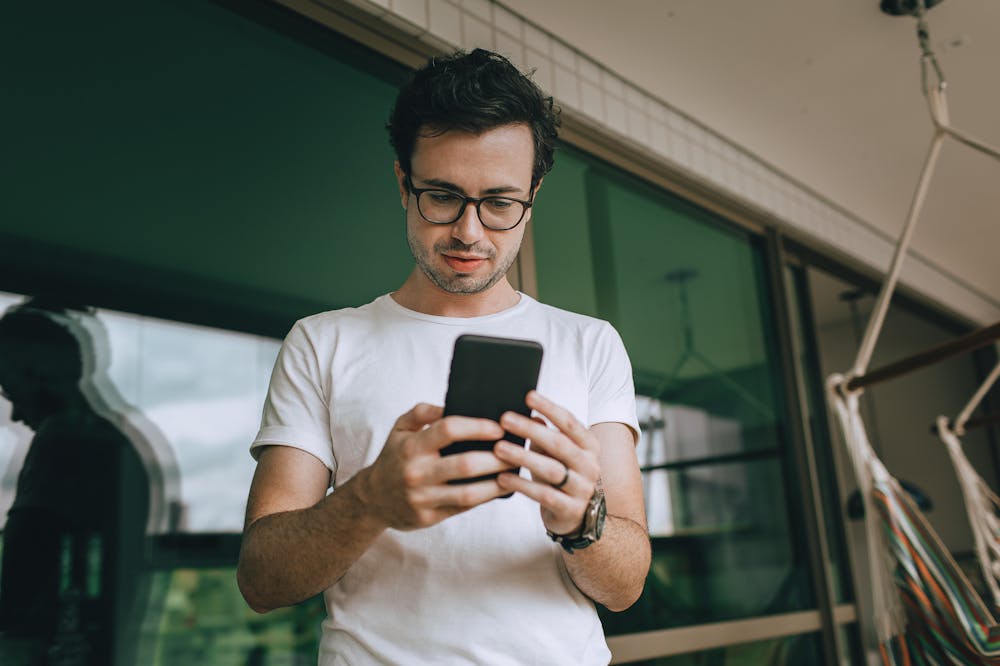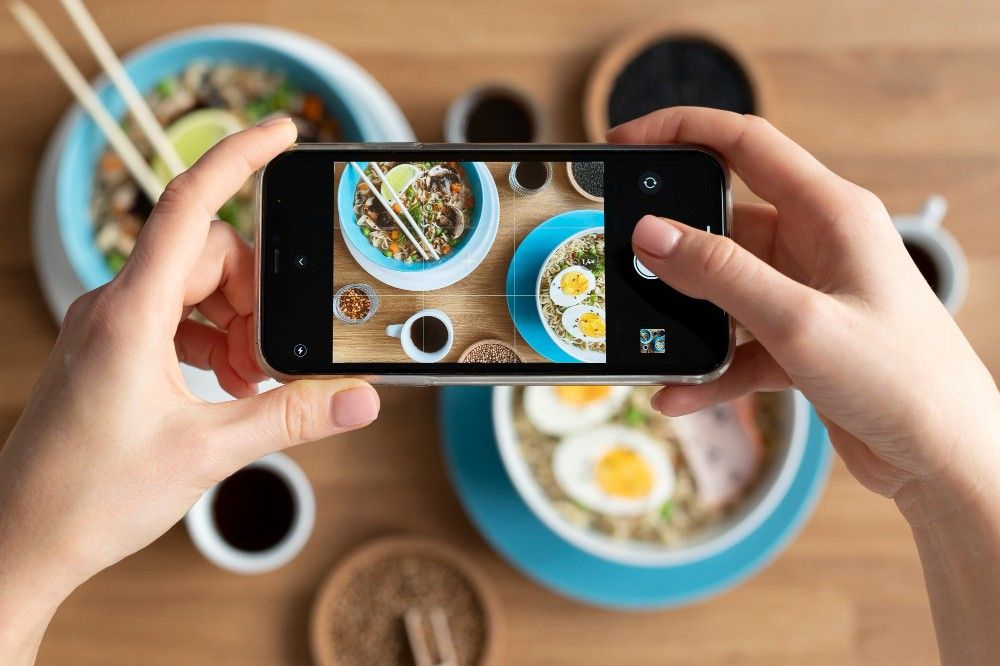
“It never ceases to amaze me: we all love ourselves more than other people, but care more about their opinion than our own.”
Marcus Aurelius
Quick note before we dive in:This isn’t an attack on influencers as people. Most are just trying to make a living in an attention economy that rewards performance over authenticity. If you’re an influencer reading this, you’re likely as trapped in this system as your audience—maybe more so.This is about the hypnotic infrastructure that affects everyone: creators burning out for engagement, audiences spiraling into comparison, and scammers exploiting the whole setup. The goal here isn’t to shame anyone. It’s to understand the mechanism and break free from it—together.
Influencer culture has become the modern gladiator arena—except the swords are selfies, the shields are filters, and the blood spilled is your attention span.
Millions of people log on every day, hypnotized by the endless scroll, waiting for their daily dose of perfect bodies, curated happiness, and hustle porn.
As a hypnotherapist, I can tell you this: social media is the biggest hypnosis show on earth. Not the helpful kind that rewires bad habits, but the cheap Vegas act version—full of smoke, mirrors, and some guy shouting, “You are getting very sleepy… Now buy this detox tea.”
The Stoics would’ve laughed their togas off at this circus. Marcus Aurelius, who ran the Roman Empire while journaling about not being a jerk, put it bluntly:
“It never ceases to amaze me: we all love ourselves more than other people but care more about their opinion than our own.”
If he saw us today, hunched over our phones, obsessing over likes from strangers we’ll never meet, he’d probably sip his watered-down wine and tell us to get our priorities straight.
This post explores the hypnotic system of the attention economy—a cycle quietly binding both performers and audiences. By applying psychology and Stoicism, we’ll see how influencer culture rests on this foundation and what it takes to escape its grip.
Hypnosis isn’t magic. It’s focused attention plus suggestibility. And that’s exactly the infrastructure of influencer culture.
Repetition. See the same beauty ideal, the same productivity hack, the same “rise and grind” mantra over and over, and your brain starts believing it. That’s not inspiration—that’s indoctrination through repetition, the oldest trick in the hypnotist’s playbook.

Authority. Big following? Blue check? Expensive watch in every frame? Boom—instant credibility, even if they’re spewing absolute nonsense. Our brains are wired to defer to perceived authority figures. Influencer culture exploits this like a pickpocket in a crowded subway.
Emotion. The FOMO posts, the “living my best life” montages, and the vulnerability porn followed by a product link—all designed to bypass your prefrontal cortex and go straight to your limbic system. You’re not thinking. You’re feeling. And feelings don’t ask questions before hitting “buy now.”
Neuroscientists have proven what the Stoics intuited two thousand years ago: this stuff rewires your brain. A 2020 study in Nature Communications showed how social media hijacks dopamine feedback loops, creating compulsive checking behavior identical to gambling addiction.
It’s not “bad self-control.” It’s engineered hypnosis at scale.
Here’s the difference: therapeutic hypnosis helps you quit smoking or manage anxiety. Influencer culture’s hypnosis makes you consume more, compare more, and feel progressively worse about yourself.
One heals. The other extracts.
And unlike the hypnotherapist who wants you to leave their office better than you arrived, influencer culture needs you to stay in the trance. Because the moment you wake up, the business model collapses.
Stoicism isn’t about being emotionless or cold. It’s about not being a slave to your emotions—or to your Instagram feed.
Epictetus, the former slave who became one of history’s greatest philosophers, said:
“We cannot choose our external circumstances, but we can always choose how we respond to them.”
You can’t control the algorithm. You can’t stop influencers from flexing their rented Lamborghinis. You can’t prevent some wellness guru from posting their morning routine that apparently includes waking up at 4 a.m., meditating for three hours, and photosynthesizing their breakfast.

But you can control whether you spiral into envy and inadequacy every time you see it.
This is the dichotomy of control—the cornerstone of Stoic philosophy. Separate what’s in your power from what isn’t. Influencer culture deliberately blurs this line. It makes you feel like you should be able to have that body, that lifestyle, and that level of success.
And when you can’t, you blame yourself instead of recognizing you’re comparing your blooper reel to someone else’s highlight reel shot by a professional team.
Marcus Aurelius had his own version of influencer culture to deal with—court gossip, public opinion, senators jockeying for status, and the constant pressure to perform imperial greatness. His response?
“Don’t waste the rest of your time here worrying about other people—unless it affects the common good. It will keep you from doing anything useful.”
That was written in 170 AD. Replace “other people” with “other people’s posts,” and you’ve got your Stoic detox plan for 2025.
The Emperor of Rome, the most powerful man in the world (at that time), was telling himself not to care about what people thought of him. Meanwhile, we’re having existential crises because our brunch photo only got 47 likes.
Here’s where influencer culture does its deepest damage: it warps your sense of self.
You start asking dangerous questions:

From a hypnotherapy perspective, this is projection on an industrial scale. People project their unmet needs—status, beauty, wealth, happiness—onto influencers.
These performers become living archetypes of what we think we lack. And in that trance state, critical thinking shuts off. We buy. We compare. We marinate in “not enough.”
This isn’t accidental. The entire economic model of influencer culture depends on you feeling incomplete. If you felt whole, you wouldn’t need the course, the supplement, the lifestyle overhaul, the next product drop.
According to findings reported by the American Psychological Association, limiting social media use to about 30 minutes daily can noticeably reduce feelings of depression and loneliness.
The math is brutal: the more you scroll, the worse you feel. The less you scroll, the more you remember who you actually are underneath the layers of comparison and aspiration.
The Stoics understood this two millennia before Instagram. Epictetus warned against tying your identity to external things—possessions, reputation, other people’s opinions.
Because those things are fragile and outside your control. Build your identity on something nobody can take away: your character, your choices, and your response to life.
Influencer culture wants you to rent your identity from the feed. The Stoics are telling you to own it outright.
Here’s where influencer culture crosses from annoying to dangerous.
Most influencers are just people trying to make a living in the attention economy.
But there’s a subset—a growing, predatory subset—who use their hypnotic influence to straight-up scam people. And because their followers are in a trance state, they’re uniquely vulnerable.

The wellness influencer selling detox teas that give you diarrhea while claiming it “cleanses toxins.” The finance bro pushing crypto schemes or dropshipping courses that work for 0.01% of people. The lifestyle guru with a $2,000 “manifestation masterclass” that’s just repackaged positive thinking. The supplement pushers making health claims that would get a doctor sued.
As a hypnotherapist, I can tell you exactly why this works: when you’re in a suggestible state—scrolling late at night, feeling bad about yourself, emotionally vulnerable—your critical thinking is offline. The influencer has built parasocial trust over months or years. You feel like you know them. They feel like a friend. So when they recommend something, you don’t scrutinize it the way you would an ad. You just… buy.
This isn’t just annoying. It’s financially and physically harmful. People drain savings on courses that teach nothing. They delay real medical treatment for “natural cures” that don’t work. They develop eating disorders chasing body types that are photoshopped or genetically impossible.
The Stoics had a term for this: phantasiai—appearance versus reality. Epictetus taught his students to test every impression before accepting it as true. “Is this actually what it appears to be, or am I being manipulated?”
That’s the question influencer culture doesn’t want you to ask.
Marcus Aurelius wrote:
“Everything we hear is an opinion, not a fact. Everything we see is a perspective, not the truth.”
Apply that filter to your feed. That “miracle morning routine”? Opinion. That “get rich quick” scheme? Perspective designed to separate you from your money. That “life-changing” product? Marketing.

The hypnotic spell breaks the moment you start asking, “Who benefits if I believe this?”
The Stoics had their own influencers. They were called actors, gladiators, and orators. And the Stoics weren’t exactly fangirling over them.
Seneca, the Stoic philosopher and playwright, wrote:
“What need is there to weep over parts of life? The whole of it calls for tears.”
His point: stop treating life like a performance for applause. Gladiator fights? Theater. Political speeches? Theater. Instagram reels? Same damn thing. It’s all spectacle. And confusing spectacle for reality is the trap.
Romans knew the gladiator fights were staged. They knew the blood was real, but the drama was choreographed. They watched anyway because humans crave spectacle. But the Stoics drew a line: watch if you want, but don’t mistake the arena for real life.
We’ve lost that distinction. We watch influencer culture and forget it’s performance art. The “candid” moments are staged. The “authentic vulnerability” is scripted. Even the “no makeup” selfies are carefully lit and filtered. It’s not real life—it’s a business model.
The gladiators performed for the crowd’s approval and often died for it—sometimes literally, always metaphorically. Influencers do the same. The burnout rate is staggering. The mental health casualties are real. But we see the highlight reel and think, “They’ve got it all figured out.”
The Stoics would tell you: they don’t. Nobody does. And that’s okay. The pursuit of external validation is a death spiral whether you’re a gladiator or an influencer. The only sustainable path is internal integrity.

Marcus Aurelius journaled in private, never intending those words to be published. He didn’t perform wisdom for an audience. He practiced it for himself. That’s the opposite of influencer culture—and exactly why it still resonates two thousand years later.
So how do you actually break free? Here’s the toolkit that combines ancient Stoic practice with modern psychology:
Pattern Interrupt. Mid-scroll, when you catch yourself comparing your Tuesday morning to someone’s highlight reel, close the app and say something absurd out loud. “I am a sentient potato.” Or whatever that breaks the trance. Your brain needs a record scratch moment to snap out of autopilot.
Self-Suggestion. Hypnosis works through repeated suggestions. Counter it with your own. Instead of absorbing “I need to look like this” or “I should be more successful,” actively repeat: “I am enough, exactly as I am.” Say it out loud. Write it on a sticky note. Repetition rewires.
Visualization. Picture your life fully lived offline. What changes? Who are you when nobody’s watching? What do you actually want versus what you’ve been told to want? This isn’t fluffy self-help—it’s deprogramming.
Negative Visualization (Premeditatio Malorum). Imagine losing your phone, your followers, and your entire online presence. Horrifying? Or weirdly liberating? The Stoics practiced imagining loss to build resilience and perspective. Try it. Most of what you think would devastate you… wouldn’t.
Journaling. Marcus Aurelius journaled daily, not for publication, but to process his thoughts and remind himself of his principles. You should too. Write what you actually value beyond the feed. Write what you’re grateful for that has nothing to do with metrics. Write your way back to yourself.

Memento Mori. Remember, you will die. Sounds morbid, but it’s clarifying. Death awareness shrinks influencer drama down to its actual size: trivial. On your deathbed, will you care that you had fewer followers than someone else? Will your legacy be the number of likes you accumulated? Or will it be how you actually lived?
Research backs this up. A 2021 study in Frontiers in Psychology showed that mindfulness interventions—which are basically Stoic practices with modern branding—significantly reduce compulsive social media use.
The ancient techniques work because human psychology hasn’t changed. We’re still the same anxious, status-seeking primates. We just have shinier tools for making ourselves miserable.
Let’s be clear: most influencers aren’t evil masterminds. They’re people caught in the same hypnotic system, performing for survival in an attention economy that chews people up and spits them out.
The scammers? Different story. Call them out. Protect people from predatory manipulation. But the average influencer is just trying to make rent by monetizing their life.
The real enemy is your unexamined mind—the part of you that reflexively chases external validation like a lab rat pressing a lever for dopamine hits. Influencer culture only has power when you hand it your attention, your envy, and your sense of self-worth.
The Stoics remind us that freedom isn’t deleting Instagram. It’s remembering that your life is infinitely bigger than Instagram. It’s recognizing that even Marcus Aurelius—the Emperor of Rome with absolute power and unlimited resources—spent his time journaling about how to be a decent human being instead of collecting applause.
You have the same choice he did: perform for strangers or live for yourself.

Next time you’re hypnotized by someone’s perfect feed, channel Marcus Aurelius:
“The applause of strangers is worthless.”
Then log off, step outside, and actually live.
Because here’s what influencer culture will never tell you: the people who are genuinely happy, fulfilled, and at peace aren’t posting about it every five minutes. They’re too busy living it.
The Stoics weren’t against pleasure or success. They just refused to enslave themselves to external validation in pursuit of those things. They built their lives on internal principles that couldn’t be shaken by other people’s opinions.
That’s the real flex. Not the car, the body, the lifestyle, or the follower count. Freedom.
Freedom from the trance. Freedom from the comparison trap. Freedom from needing strangers’ approval to feel like you matter.
You already matter. You always did. The feed didn’t create your worth, and it can’t destroy it.
Remember that, and influencer culture loses its grip entirely.
Now go live like you mean it.
DISCLOSURE: In my article, I’ve mentioned a few products and services, all in a valiant attempt to turbocharge your life. Some of them are affiliate links. This is basically my not-so-secret way of saying, “Hey, be a superhero and click on these links.” When you joyfully tap and spend, I’ll be showered with some shiny coins, and the best part? It won’t cost you an extra dime, not even a single chocolate chip. Your kind support through these affiliate escapades ensures I can keep publishing these useful (and did I mention free?) articles for you in the future.
READ NEXT